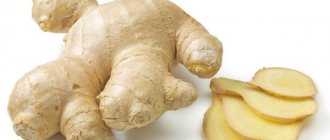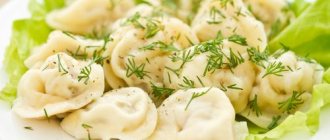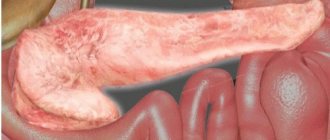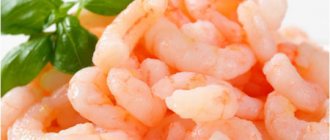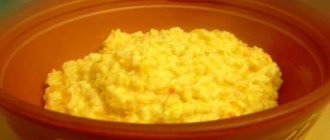Home Diseases and treatment Gastroenterology
3 Nov 2021, 12:06 Irina 5 513 No
Due to disturbances in the functioning of the pancreas, a dangerous disease such as pancreatitis can occur. People diagnosed with this disease have an abnormal flow of digestive enzymes that help break down food. The cause of this disease is the abuse of harmful foods, alcohol and improper diet. Ginger is in first place for treating the pancreas in folk medicine. You will learn further about the properties, benefits and applications of this wonderful plant.
Useful properties of ginger
Ginger is a popular product and remedy for a variety of diseases. Ginger root is included in the traditional recipes of the cuisines of dozens of peoples around the world - in the form of a seasoning or an independent dish. The root is readily used to prepare lemonades, tea, fish and meat dishes. Baking, various sauces and salads cannot do without the aromatic root. Modern medicine has officially recognized the healing properties of ginger for colds. Will ginger ease or worsen the condition of a patient with pancreatitis?
An amazing plant came from India to Europe in the 18th century, and from there to Russia. At home, the use of the root is widespread. Today it is easy to buy ginger root, native to Southeast Asia, China, South America and Africa.
The benefits of ginger are due to the plant’s content of a complex of vitamins, minerals and acids, which are better absorbed than those synthesized due to the naturalness of the source.
The starch and sugar contained in ginger can replenish the body's energy reserves no worse than a cup of coffee. The plant has a pleasant tart taste and aroma and is loved in the culinary world. The plant has been scientifically proven to have bactericidal, immunostimulating, antitumor, anti-inflammatory, and other beneficial properties. Ginger is a wonderful storehouse of health.
Action of ginger:
- Improved blood circulation;
- Balance of fat metabolism;
- Helps relieve nausea;
- Accelerates recovery from colds;
- Reduces muscle, joint and headache pain.
If a popular product is not included in your diet, start consuming ginger to maintain your health.
Eating spices: benefits and harms
Improper use of the plant's root can lead to the fact that even a person who has never complained of stomach diseases will feel pain and malaise. This product can help improve the functioning of the digestive system, but only if the norm is followed.
It is best to mix a little ginger with tea, provided that there is no acute pancreatic inflammation.
You should not try to cure this disease with ginger tea, but a small amount of the product can be added to the dish during recovery.
Doctors, when asked whether it is possible to use ginger for pancreatitis, advise first undergoing a standard course of treatment. If there is no stomach pain, you can introduce the spice into food in small doses. If you do not follow this rule, you can get a negative result: pain, swelling, inflammation. A positive effect will be achieved only in the absence of contraindications.
If the disease has already been cured, but digestive problems remain, then you can consume a few grams of ginger, observing the body’s reaction.
Eating pickled ginger is not recommended in almost all cases, especially for any stomach diseases. It is added to food only as a spice, or in crushed, dried form.
Before use, be sure to consult a doctor.
How ginger affects the digestive system
Ginger has a positive effect on the body's digestive system. Added to meat dishes, promotes easy absorption. As a result, there is no heaviness in the stomach after a hearty dinner. The plant promotes the production of gastric juice and accelerates the process of food digestion. Therefore, after a heavy meal, you don’t have to worry about storing extra calories in your body. Ginger is indicated for patients suffering from decreased appetite.
The tart root also has irritating properties. In some sources with recommendations for the treatment of the stomach and pancreas, there is a lot of advice on the use of ginger. Should you trust it or should you be wary?
Like any medicine, ginger has contraindications.
Using ginger for pancreatitis
It has been proven that the beneficial burning root relieves inflammatory processes in the body. Therefore, many people think that it should be used for pancreatitis. But its therapeutic effect will be noticeable only if the spice is consumed in small doses.
At the same time, ginger is known for improving the functioning of the digestive system. If you add a pinch of spice to your food, you can get rid of belching and indigestion, improve appetite and normalize the production of gastric juice.
In the east, ginger is actively used for pancreatitis of the pancreas. However, traditional medicine does not recommend using the root in acute forms of the disease. And if you use ginger during prolonged remission, it can cause an exacerbation.
Sometimes, with chronic pancreatitis, the doctor allows the patient to eat the hot root, adding it as a spice to dishes. However, the spice can only be used occasionally and in small quantities.
Harm of ginger
Ginger is a hot spice; if used incorrectly or uncontrolled, it is easy to irritate or burn the gastric mucosa.
Ginger contains many essential oils and gingerol, which activate the production of gastric secretions. Therefore, official medicine categorically does not recommend ginger for pancreatitis! Other spices and seasonings that have irritating and stimulating properties are excluded from the diet of patients suffering from acute and chronic forms of pancreatitis.
Using ginger even in small quantities, regardless of the method of preparation: fresh, pickled or dried, can cause a severe attack with acute pain. The situation should be taken very seriously; as a result, necrosis of pancreatic tissue and nearby organs is provoked. If, during the treatment of pancreatitis, a stable remission has occurred and attacks have not occurred for a long time, you should not use ginger.
All kinds of recipes promising treatment of the gastrointestinal tract based on the use of ginger have their origins in oriental medicine. Ancient science prescribes tiny doses of the product - exclusively in the form of medicine. Eating ginger for pancreatitis is strictly contraindicated.
Ginger tea causes less irritation of the mucous membranes, and this drink can be consumed if you have pancreatitis.
Tea for prevention: how to prepare
Is it possible to drink tea with ginger for prevention? This is acceptable provided that minimal doses of the product are used. The best option is to drink ginger tea no more than 1-2 mugs per week.
- First you need to properly dry the root of the plant. It is cut into small pieces and soaked in warm water for several minutes;
- then the spice is taken out and dried in a warm, sunny place for 2-4 months. The roots must be completely dry;
- When the product is ready, you can brew tea. A small amount of the plant - about 20 grams - is poured with boiled water (300 ml);
- You need to drink tea when it is cold. You can add a teaspoon of honey.
Another way to use the plant's root is as an infusion. To prepare it you need:
- grind about 30 grams of root;
- pour boiling water over it in a ratio of 1:4;
- cool the drink.
The infusion should be consumed warm, but not hot. To reduce inflammation, just drink a glass of infusion once a day. Ginger tea for pancreatitis is drunk only after eating - after 30-40 minutes. It is important that the pancreas is not inflamed. If you feel unwell after drinking tea, you should consult a doctor.
Ginger tea for pancreatic disease
For inflammatory processes of the pancreas, drinking ginger tea is considered beneficial. The essential oils present in the root of the plant, as well as gingerol, activate the secretory activity of the pancreas and stomach. The drink has a calming, anti-inflammatory effect, and also relieves irritation and inflammation from the mucous membrane of the pancreas.
The tea is recommended for consumption at the stage of subsidence of the main pain symptoms of pancreatitis. The ideal option for preparing a drink from fresh root, if it is not available, you can use dried or ground root.
Recipe for making ginger tea for pancreatitis:
- Pour half a teaspoon of ground or fresh (finely grated) ginger into a glass (200 ml) of boiling water, cook for about ten minutes over low heat and with the lid tightly closed. Leave for 15 minutes, take warm with honey and a slice of lemon. The drink should only be consumed freshly brewed.
Ginger tea for pancreatitis, especially in acute and chronic forms, can be consumed, but with extreme caution and in small quantities, precisely as a medicine, not a food product.
What about cholecystitis?
What if the patient suffers from cholecystitis? Then can I use ginger root? No, in this case the same rule applies as with pancreatitis. Ginger for cholecystitis is not allowed to be used in large quantities in any form; in a small dose it can be used for the chronic course of the inflammatory process.
Some people believe that if the plant is consumed by patients with gastritis and cholecystitis, it will have an antispasmodic effect. However, this is not entirely true, so it is best to trust medical remedies. After all, not every person can choose such a dosage to eliminate the disease, and not aggravate it.
Thus, ginger has many healing properties, but its incorrect dosage can harm even a healthy body. Therefore, it is best for patients suffering from pancreatitis to avoid this product in order to avoid the development of an exacerbation of the disease. This applies not only to the pathology of the pancreas, but to the occurrence of inflammatory processes in any organ of the digestive system.
source
What else do you need to know about ginger?
In addition to pancreatitis, doctors prohibit the use of ginger root for many other pathological conditions:
- malignant neoplasms of any location,
- tendency to allergies,
- many dermatological diseases,
- bleeding (nasal, hemorrhoidal, uterine, gastrointestinal),
- blood diseases accompanied by increased bleeding,
- second half of pregnancy, breastfeeding period,
- liver diseases (cirrhosis, hepatitis),
- high body temperature in any pathological condition.
Despite the numerous healing properties of ginger and its beneficial effect on the digestive system, gastroenterologists do not recommend using it for diseases of the pancreas. Due to a pronounced increase in the secretory activity of this organ, after taking dishes from the root of a medicinal plant, exacerbation of pancreatitis and even life-threatening conditions may develop. The only approved way to consume ginger during the treatment of pancreatitis is ginger tea.
- David Frawley, Vasant Lad. Herbs and spices. Traditional and alternative medicine 2009 Sattva Publishing House.
- Barnaulov O. D. Spices: medicinal properties and medical use. Elista, 1999
- Salo V.M. Green friends of man. M.: Nauka, 1975.
- Minina S.A., Kaukhova I.E. Chemistry and technology of herbal remedies: textbook. 2nd ed., revised and expanded M.: GEOTAR-Media, 2009.
- Collection of recipes for dishes and culinary products for catering establishments. edited by F. L. Marchuk, 2006, 2007
- Card index of medical and rational nutrition dishes edited by M. A. Samsonov. T. 1, 2. 1995–1996
- Collection of recipes for dishes and culinary products for dietary nutrition, edited by V. T. Lapshina, 2002.
Types of pancreatitis
According to the nature of the course, pancreatitis can be acute or chronic. In the acute form, pathological processes in the pancreas develop extremely quickly, causing sudden intense pain in the upper abdomen and severe vomiting with bile.
Important: In case of acute pancreatitis and exacerbation of chronic pancreatitis, as first aid, you need to apply a heating pad with cold water to the sore spot. You should not drink water, eat or take any medications until the doctor arrives.
Chronic pancreatitis, unlike acute pancreatitis, is a long-term progressive disease, the course of which consists of periods of remission and exacerbations. An exacerbation is characterized by an acute necrotizing inflammatory process in an organ, in which its functional tissue is replaced by connective tissue. With frequent exacerbations, pancreatic insufficiency gradually develops.


